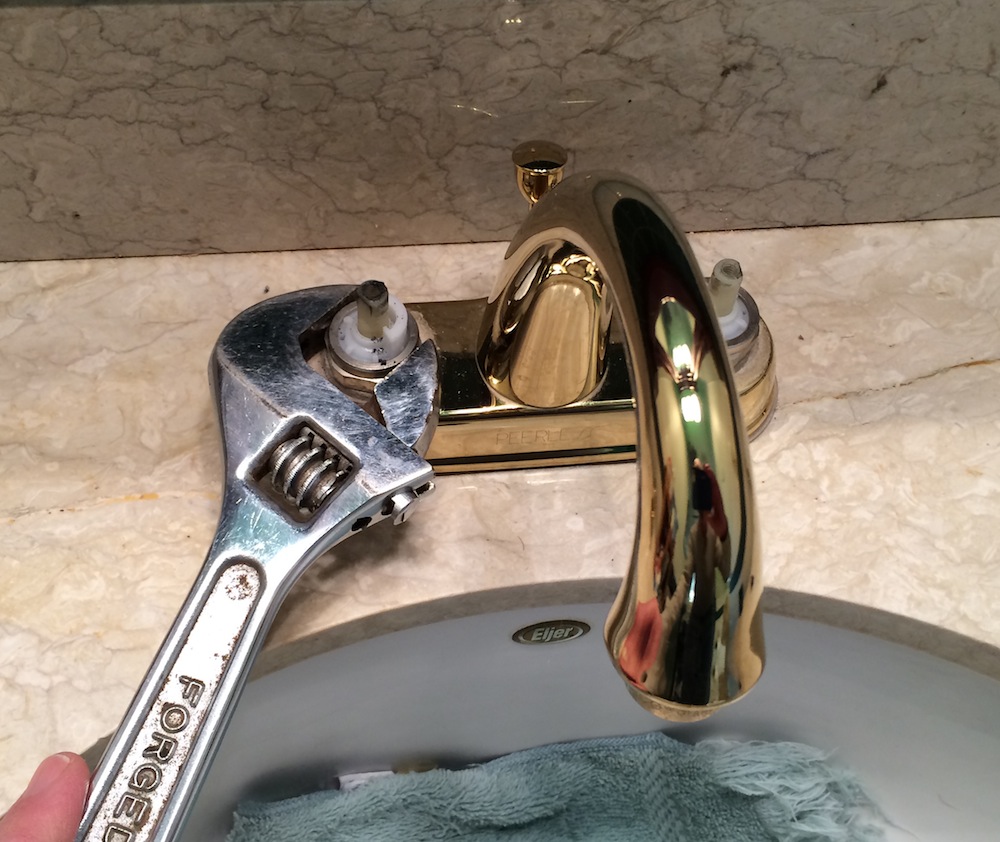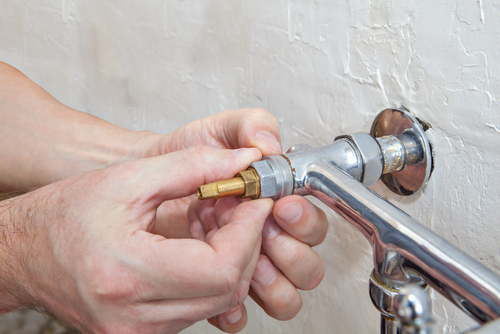Just how do you feel in relation to Why It's Important to Fix Leaky Faucets?

Leaking taps might appear like a small inconvenience, however their effect exceeds simply the aggravation of the sound. From wasting water to incurring unneeded economic costs and health risks, disregarding a leaking faucet can cause various effects. In this post, we'll delve into why it's important to resolve this typical family concern without delay and effectively.
Wastage of Water
Environmental Impact
Dripping taps add dramatically to water wastefulness. According to the Environmental Protection Agency (EPA), a solitary faucet dripping at one drip per secondly can throw away greater than 3,000 gallons of water each year. This not just stress water resources but also affects ecosystems and wild animals based on them.
Financial Expenses
Enhanced Water Expenses
Beyond the ecological influence, leaking faucets can inflate water costs considerably. The gathered waste over time equates into higher energy costs, which could have been stayed clear of with prompt repair work.
Potential Residential Or Commercial Property Damages
Furthermore, prolonged trickling can cause damage to components and surfaces surrounding the tap. Water accumulation can create staining, rust, and even architectural issues if left neglected, leading to additional repair service costs.
Wellness Issues
Mold And Mildew and Mold Development
The consistent visibility of moisture from a trickling faucet creates an optimal atmosphere for mold and mildew growth. These fungis not only endanger indoor air top quality but also present health and wellness risks, specifically for people with respiratory problems or allergic reactions.
Waterborne Diseases
Stationary water in trickling faucets can come to be a breeding ground for germs and various other virus, increasing the danger of waterborne conditions. Contaminants such as Legionella bacteria prosper in stationary water, potentially resulting in serious diseases when consumed or breathed in.
Do it yourself vs. Professional Repair service
Pros and Cons of Do It Yourself Repair Work
While some might try to fix a dripping faucet themselves, DIY repair services feature their own set of difficulties. Without appropriate understanding and devices, do it yourself efforts can worsen the concern or bring about incomplete repair work, extending the issue.
Benefits of Employing a Professional Plumber
Hiring a specialist plumber makes certain that the underlying source of the leaking faucet is attended to efficiently. Plumbers have the experience and tools to detect and fix tap concerns effectively, conserving time and lessening the danger of further damage.
Step-by-Step Guide to Dealing With a Dripping Faucet
Devices Needed
Prior to trying to deal with a leaking tap, gather the required devices, including an adjustable wrench, screwdrivers, substitute parts (such as washers or cartridges), and plumber's tape.
Usual Tap Issues and Their Solutions
Recognize the type of tap and the details concern creating the drip. Common troubles include damaged washers, rusty shutoff seats, or damaged O-rings. Refer to maker guidelines or online tutorials for step-by-step support on repair work.
Safety nets
Regular Maintenance Tips
To avoid leaking faucets, execute regular upkeep such as cleaning up aerators, examining for leaks, and replacing worn-out parts immediately. Additionally, take into consideration mounting water-saving tools or upgrading to extra efficient fixtures.
Value of Prompt Services
Resolving leaking faucets as quickly as they're noticed prevents further water wastage and potential damage, eventually conserving both water and cash in the long run.
Effect On Home Value
Perception of Well-Maintained Residential Or Commercial Property
Preserving a property in good condition, including dealing with maintenance concerns like leaking faucets, improves its perceived value and worth among potential buyers or tenants.
Impact on Resale Worth
Qualities with well-kept plumbing fixtures, consisting of faucets, command greater resale values in the property market. Attending to leaking taps can contribute to a positive impact during building assessments and negotiations.
Ecological Duty
Specific Contribution to Conservation
Taking duty for repairing leaking taps aligns with wider initiatives towards water preservation and environmental sustainability. Every person's activities jointly make a substantial impact on protecting valuable sources.
Lasting Living Practices
By prioritizing prompt repair work and taking on water-saving behaviors, people add to lasting living methods that profit both existing and future generations.
Verdict
Resolving a leaking faucet exceeds plain comfort; it's a crucial action toward preserving water, reducing economic prices, and guarding wellness and property. Whether through do it yourself repair services or expert help, acting to repair dripping taps is a little yet impactful method to advertise liable stewardship of resources and add to a much healthier, much more lasting future.
How to Fix a Leaky Faucet: Step-by-Step Repair Guide
A leaky faucet may seem like a simple annoyance, but if it's not fixed promptly, that leak could cost hundreds to potentially thousands. From water damage to mold, mildew, and high water bills, even a tiny leak can be catastrophic if left unattended. Damage like this can even affect the overall value of your home, so it's important to take the right approach for leaky faucet repair. You may need the help of a plumber in some cases, but we've got a few tips you can try on how to fix a leaky faucet before calling the pros.
Four Faucet Types
When you're learning how to fix a leaky faucet, the first step is knowing what kind of faucet you're working with! There are four common types.
Cartridge Faucets
Cartridge faucets come in one- or two-handled varieties. In one-handled cartridge faucets, hot and cold water combines in a single cartridge. In the two-handled versions, hot and cold water are controlled separately and mixed in the faucet.
Ball Faucets
Ball faucets have a single lever you push up and down to adjust the pressure and rotate to change the temperature. A slotted metal ball controls the amount of water allowed into the spout.
Compression Washer Faucets
They're the oldest type of faucet, but they're still used in many homes — especially older ones. Compression faucets have two separate handles that, when turned, raise or lower the washer that seals a water valve. This valve stops water from flowing through the faucet when it is turned off.
Disc Faucets
Disc faucets rarely need to be repaired due to their maintenance-free design. The water flow is controlled by two discs — the upper one raises and lowers against a fixed lower disc, creating a watertight seal. If your disc faucet starts leaking, you may need to replace the seals or clean residue buildup from the inlets.
Fixing a Leaky Faucet
Step 1: Turn Off the Water
Whether you're learning how to fix a leaky bathtub faucet or how to fix a leaky kitchen faucet, always turn off the water supply to your working area when you're fixing a leak. The last thing you want is a flood added to your list of things to fix.
Look for the shutoff valves below your sink or around the tub and turn them clockwise to stop the water flow. If your faucet doesn't have shutoff valves, you may need to turn off the water for the whole house. Check to make sure it's off by turning the faucet on. If nothing comes out, you're ready to start the repair.
Step 2: Take Apart the Faucet
How you disassemble your faucet depends on the type of fixture you have. You can use a flathead screwdriver to remove the caps on top of the handle or handles for cartridge and compression faucets. Inside, you should see handle screws. Unscrew these with a screwdriver to remove the handle.
Disc- and ball-style faucets will typically have an inlet screw near the handle, and removing that will reveal the interior of the faucet.
Detach the Valve Stem
For cartridge- and compression-style faucets, you'll see the inner valve stem or cartridge once you remove the faucet handles. If you have a compression faucet, unscrew the brass valve stem. If you have a cartridge faucet, pull out the cartridge. If your cartridge has been in place for a while, it may require some tools or extra force to remove it due to mineral deposits.
Examine and Replace Parts
Once you've removed the parts, check them out to confirm what needs to be replaced. You may see corroded rubber washers, O-rings, stems, or cartridges. On a ball-style faucet, check the seats and springs for damage.
If you need to repair a leaky disc faucet, check the inlet and seals on the lower disc.
Once you determine what parts must be replaced, visit your local hardware store. Bring the damaged parts with you to ensure you can purchase the correct components to replace them.
Clean Valves and Faucet Cavity
If you've removed a stem or cartridge, you may notice mineral buildup in the faucet's threads. Use white vinegar to clean the valve seat by soaking it for a few minutes, then scrub it away with a soft toothbrush and rinse with warm water. You can also clean the interior of the faucet in the same way.
Reassemble the Faucet
Once your faucet is cleaned and the required parts have been replaced, it's time to reassemble it. Put the pieces back together and slowly turn the water supply back on. Doing this slowly is crucial because too much initial water pressure can damage the new hardware you've just installed.
https://homewarranty.firstam.com/blog/how-to-fix-leaky-faucet

I am very interested in Why It's Important to Fix Leaky Faucets and I really hope you enjoyed reading the entire entry. Sharing is good. You won't know, you may be doing someone a favor. Many thanks for going through it.